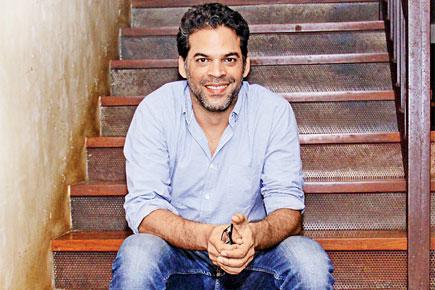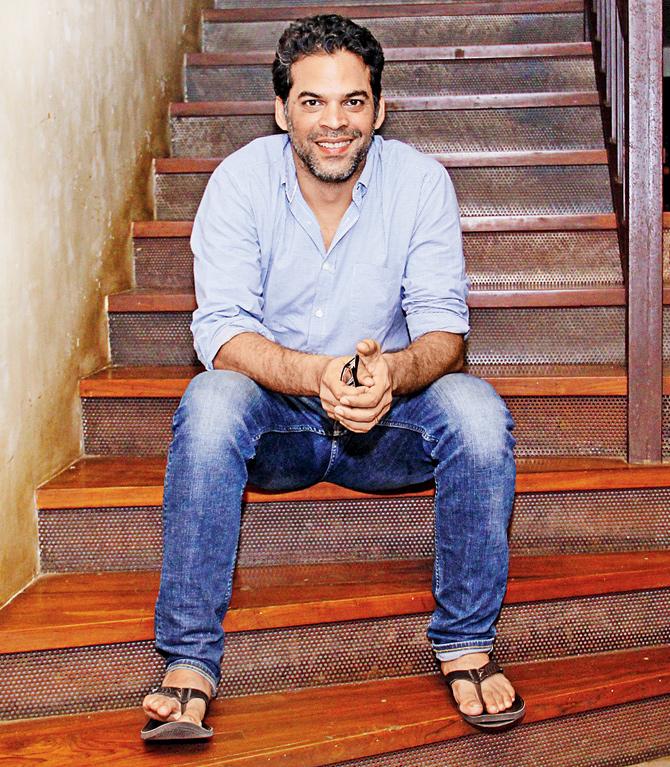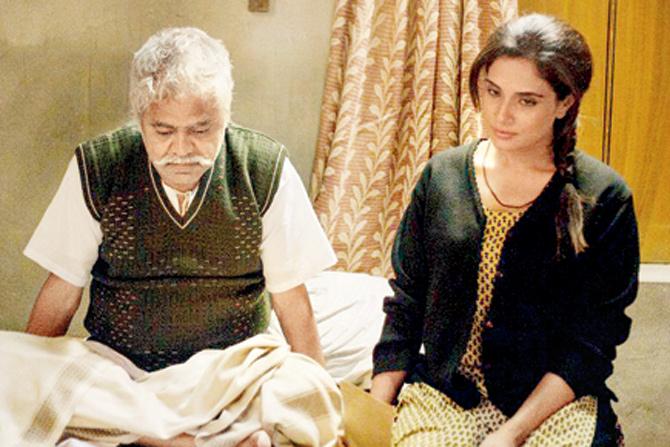Bollywood filmmaker Vikramaditya Motwane, on why he will make fringe festival films, but doesn’t want to be identified as a director who does

A still from 2015's Masaan produced by Vikramaditya Motwane's Phantom Films
ADVERTISEMENT
When Vikramaditya Motwane, a man who got recognised and hailed for the slim-budgeted indie film, Udaan — which went onto pique curiosity at international film fests, and even swept trophies at one of India’s biggest mainstream film awards — says he doesn’t want to be called a “festival film director”, we think that odd. It’s odder still because of the timing. The 38-year-old’s last film as producer was another indie — the 2015 release, Masaan (Crematorium), which received a rare standing ovation at Cannes.

Vikramaditya Motwane
Let’s add another irony. His last commercial, non-festival film, Lootera, starring marquee names Ranveer Singh and Sonakshi Sinha, was a visual treat but declared one of 2013’s biggest flops.
“A ‘festival’ tag, sometimes, alienates your audience. It’s hard for smaller, indie movies. They not only have to be good, but very good. That’s the only way word of mouth will work, and draw people into the halls,” he explains.

A still from 2015’s Masaan produced by Vikramaditya Motwane’s Phantom Films. Pic/Sharad Vegda
It’s a little while before indie movies do well at the box office, if they ever do. It’s a game of “should” vs “would”, he thinks. “Of course, multiplexes should play more of the smaller films, and for longer, but will they? Most probably not,” he says.
But festivals like Mumbai Academy of Moving Image (MAMI) have been ambassadors for small budget cinema. Motwane has directed this year’s MAMI campaign film, which sees film personalities from the industry narrate their connection with the city of dreams. At Phantom’s Oshiwara office, we are discussing why we need film fests to showcase a niche film like Masaan.

A poster of Shaandaar
Masaan (directed by Neeraj Ghyawan, who assisted Kashyap on Gangs of Wasseypur), although critically acclaimed and a poignant love story played out against the ghats of Benaras, was released in theatres immediately after the success at Cannes, it barely managed to recover costs.
Motwane chooses to laugh in self-deprecation. “We released it in France and Belgium too, but they were having a ‘good’ summer, and so, no one went to the movies. Everyone was at the beach.”
Behind the humour is a lesson learnt and filed away. A sharper budget, a better name could’ve helped. “How do you sustain a marketing campaign for less? How do we distribute better? How can we go bigger internationally?” These are the questions that Motwane and his partners, Vikas Bahl, Anurag Kashyap and Madhu Mantena, of Phantom are asking. Even the cult-classic, Bombay Velvet, made on a budget of R84 crore, proved teacher.
“Research said that people didn't come for the movie because they didn’t like Ranbir’s hair! The trailer was all wrong, too,” says Motwane, bluntly. “And once again, it’s about spending less, always spending less.”
Phantom’s next release, Shaandaar is a masala film with popular names — Shahid Kapoor and Alia Bhatt — set against the big fat Indian wedding. Its over-the-top song picturisation and larger-than-life romance is a fry cry from Masaan’s middle-class setting. It’s a film that the trio hopes will rake in the money to help them continue to “make movies we love to make.” He is aware that what they need is a robust business model. “Of course, you want to make profits, you want to grow with every film. We have realised we don’t want to restrict ourselves to one kind of movie. We want to make movies for everyone.”
And so, Phantom’s indie spirit will continue to glow in Abhishek Chaubey’s next story about the drugs business in Punjab. Anurag Kashyap’s directorial next is, says Motwane, a small film, as is his own, AK vs SK starring Shahid Kapoor.
“With these [indie] movies, you don’t think let's-make-money. Neeraj Ghaywan’s career has taken off post it, and Phantom has grown. Sometimes, the investment return is not about money but brand equity,” he explains.
Motwane is optimistic about the independent film scene. In the last year, Marathi film Killa, Bengali film Labour of Love and Tamil movie Kaaka Muttai have all seen critical success. “It’s been a good year, won’t you say? It will only grow from here,” he says. “You can’t compare them to the big movies like Bajrangi Bhaijaan. But once in a decade, an indie film comes and breaks through that ceiling.” Let’s hope that’s coming soon.
 Subscribe today by clicking the link and stay updated with the latest news!" Click here!
Subscribe today by clicking the link and stay updated with the latest news!" Click here!







